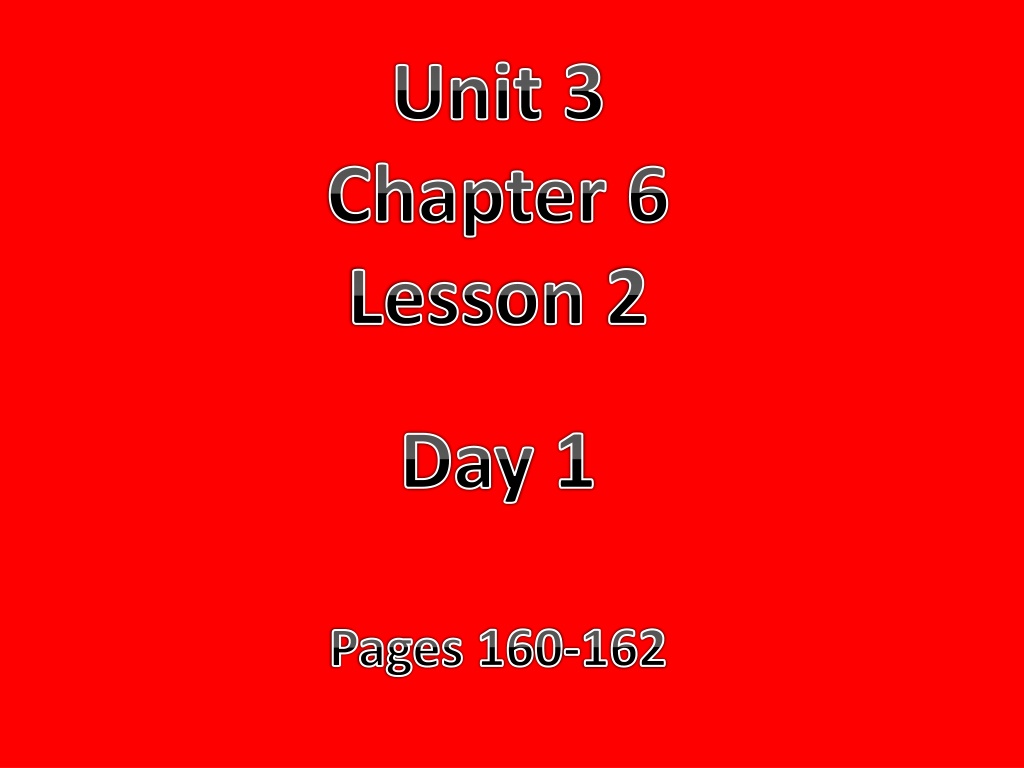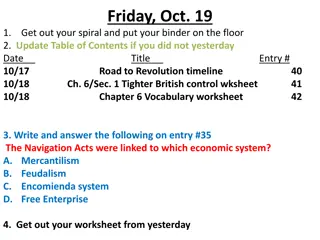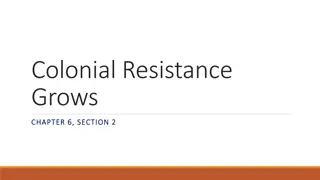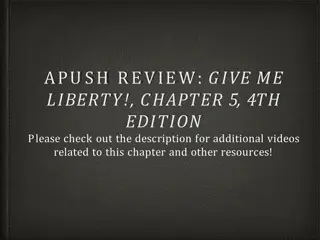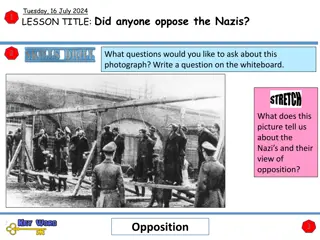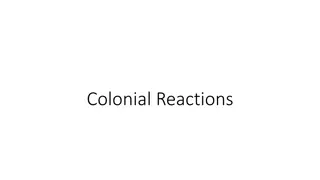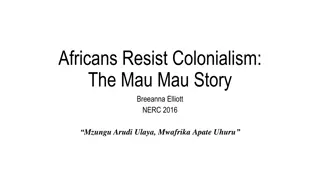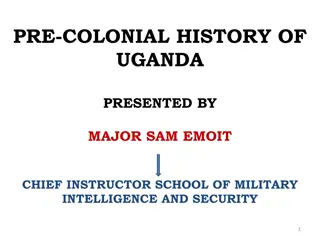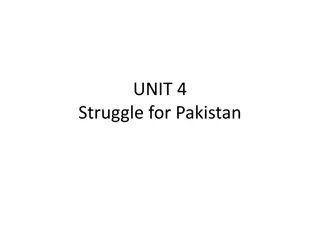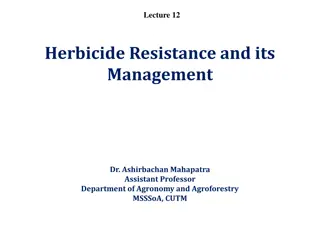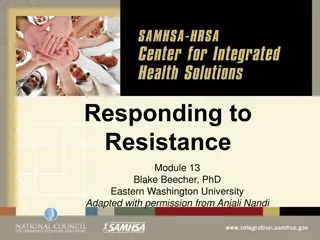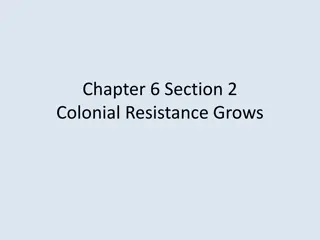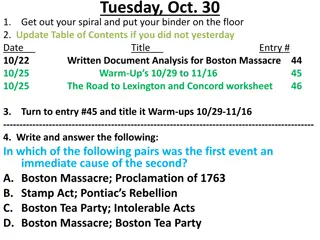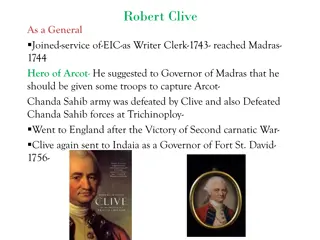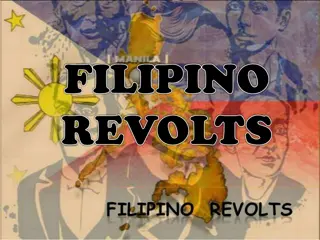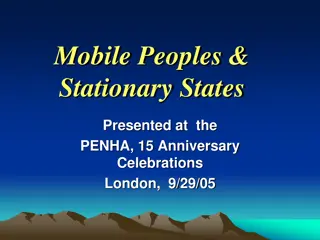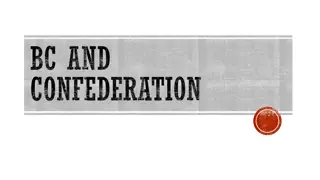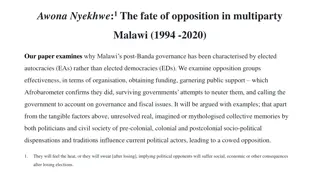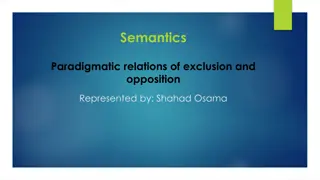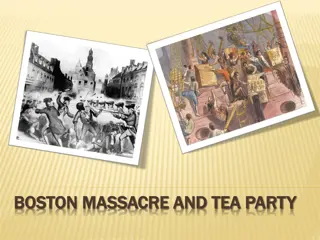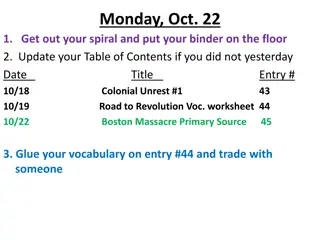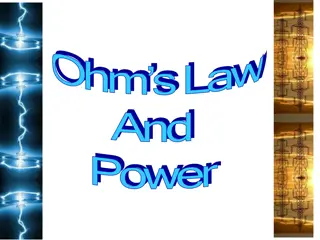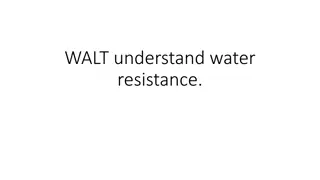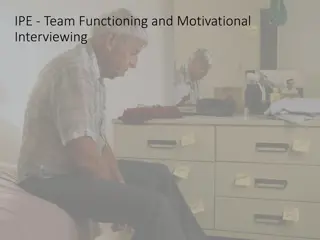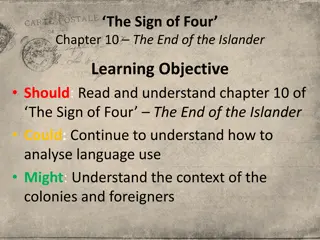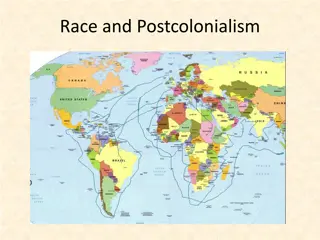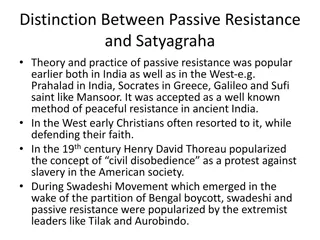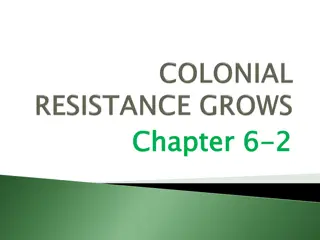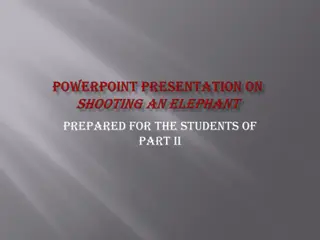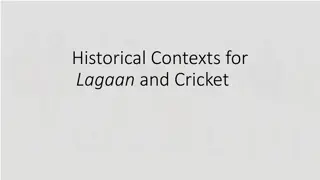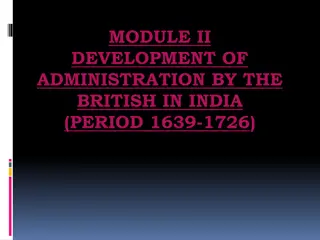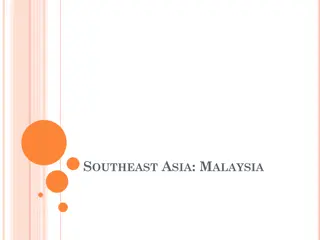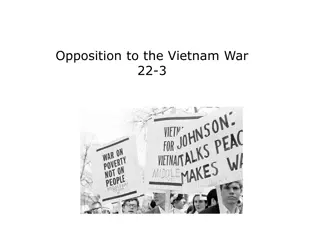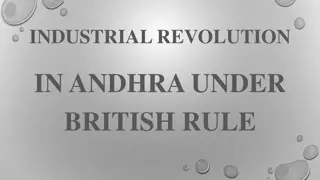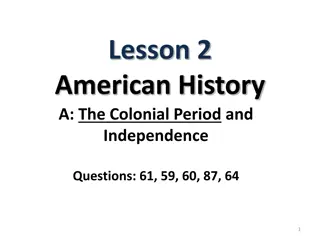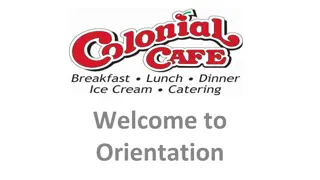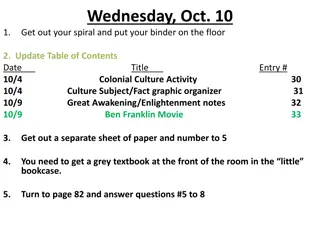The Stirring Resistance: Colonial Opposition to British Rule in America
The French and Indian War and subsequent taxes imposed by Britain on the American colonies sparked widespread opposition among colonists. From the Stamp Act of 1765 to the Townshend Act of 1767, protests, boycotts, and calls for unity against British rule grew. Despite efforts to maintain order, tensions between colonists and British soldiers escalated, fueling the spark of revolution.
Download Presentation

Please find below an Image/Link to download the presentation.
The content on the website is provided AS IS for your information and personal use only. It may not be sold, licensed, or shared on other websites without obtaining consent from the author. Download presentation by click this link. If you encounter any issues during the download, it is possible that the publisher has removed the file from their server.
E N D
Presentation Transcript
Unit 3 Chapter 6 Lesson 2 Day 1 Pages 160-162
PLEASE DO NOW! Write three lines describing a time when there was a rule you didn t agree with. What was the rule? What did you do about it? What happened next? Share with your partner.
The French and Indian War and Pontiac s Rebellion cost Britain a lot of money. The wars left Britain in debt.
To raise money, Britain started taxing the American colonies. The colonists thought this was unfair.
Parliament passed the Stamp Act in 1765 which was a law that said all colonial newspapers and official documents had to have a special stamp. Colonists had to pay a tax for these stamps. http://arago.si.edu/media/000/011/583/11583_lg.jpg
Many colonists protested the Stamp Act and refused to pay for it. It was repealed, or stopped, in 1766. http://24.media.tumblr.com/tumblr_m1ajvwVNP41qzk0glo1_400.jpg
Then in 1767, Parliament passed the Townshend Act. This put taxes on British goods like paper, glass, cloth, and tea. Many colonists boycotted these goods.
Colonists continued to get angry. Many colonial leaders knew the colonies should join together in their opposition against Britain. Ben Franklin s cartoon encouraging colonists to join together.
The protests continued. Many speeches and sermons were given, cartoons made, and books and pamphlets written to encourage colonists to join in the cause of liberty.
Britain sent soldiers over to America to try to keep order. Colonists and British soldiers often got into fights or arguments.
On March 5, 1770, in Boston, Massachusetts, British soldiers fired into a crowd of protesters. Five colonists were killed. This became known as the Boston Massacre.
Nonfiction Fiction Historical Historical Fiction
Rise to Rebellion By Jeff Shaara Historical Fiction Analysis Evidence of Fiction Elements of Nonfiction
